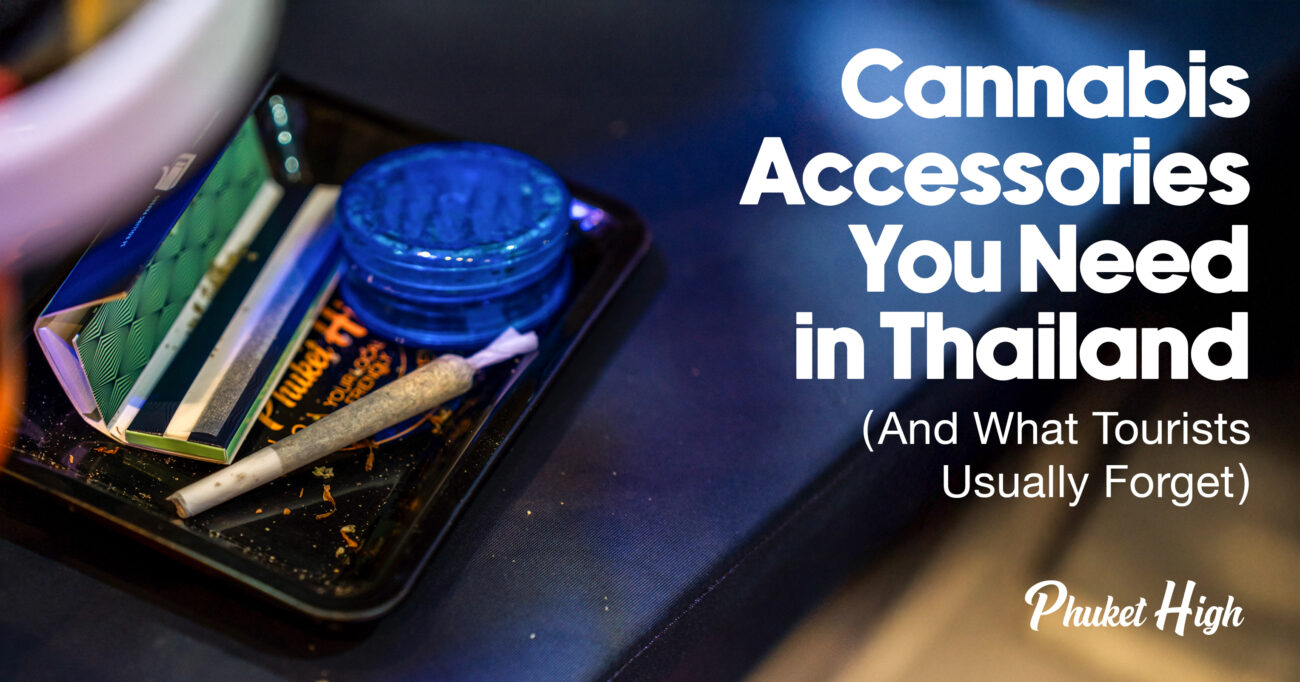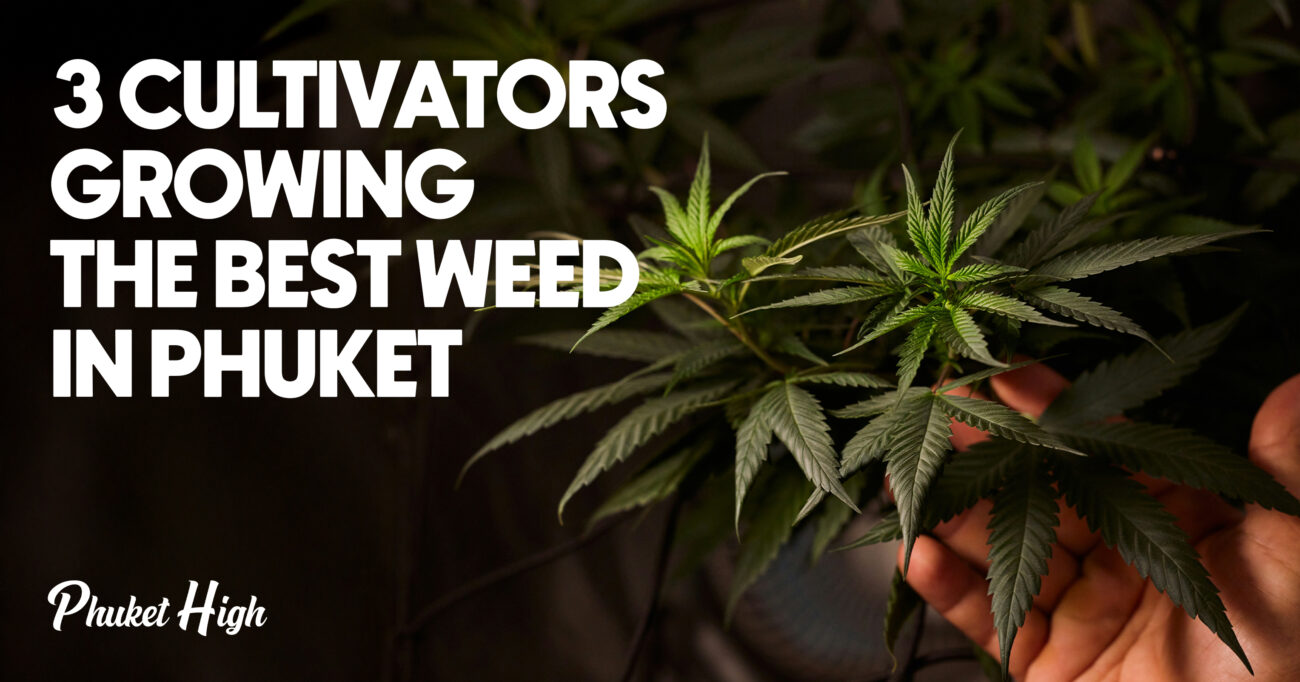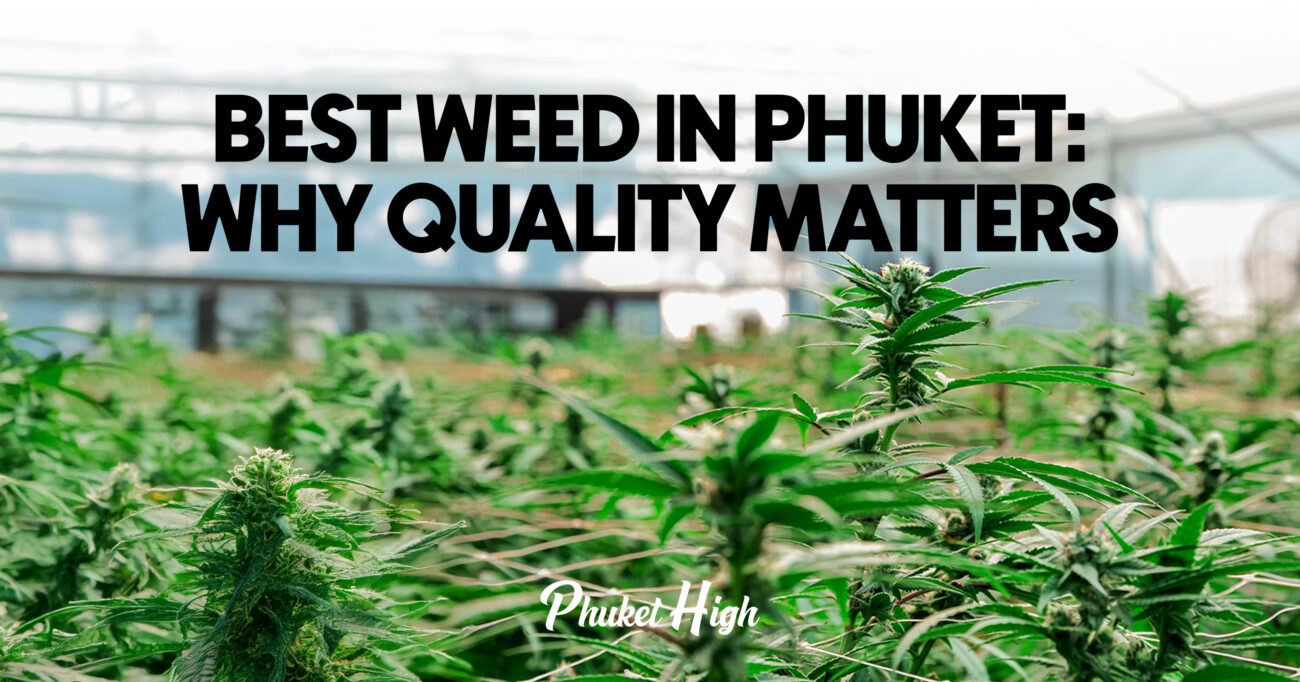Cannabis has long been entwined with Thailand’s cultural and historical landscape, albeit often within the framework of strict anti-drug policies. Dating back centuries, the plant has been utilized for various traditional and medicinal purposes. However, it wasn’t until 2018 that Thailand made a groundbreaking shift in its approach to cannabis. With the introduction of legalization initiatives, Thailand emerged as a pioneer in Southeast Asia, leading the charge towards embracing the medicinal potential of cannabis. This move not only marked a significant departure from previous laws but also positioned Thailand at the forefront of progressive cannabis reform in the region. As the first Southeast Asian nation to embrace medical cannabis, Thailand’s journey holds profound significance, reflecting a broader global trend towards recognizing the therapeutic value of this ancient plant.
Thailand’s Cannabis Research In 2024
Since the initiation of cannabis legalization, Thailand has witnessed the establishment of a thriving medical cannabis industry, marked by a concerted focus on research and development. This industry’s primary objective is to unlock the full therapeutic potential of cannabis for various medical conditions, ranging from chronic pain to neurological disorders.
Research efforts have been extensive, with studies exploring the efficacy of cannabis-based therapies in managing symptoms and improving the quality of life for patients. This includes investigations into the use of cannabis for pain management, epilepsy, PTSD, and cancer-related symptoms, among others. You can read more on the research efforts here.
Central to these advancements is the establishment of quality-controlled medical cannabis production facilities. These facilities adhere to stringent regulations to ensure the safety, purity, and consistency of cannabis-based products. By implementing robust quality control measures, Thailand aims to provide patients with access to standardized, pharmaceutical-grade cannabis medications, bolstering confidence in the efficacy and reliability of these treatments.
Debunking Cannabis Stereotype With Themed Events In 2024
The year 2024 has witnessed a remarkable emergence of cannabis-themed events and festivals across Thailand, serving as platforms for promoting responsible cannabis use and fostering education. These events represent a significant shift in societal attitudes towards cannabis, providing opportunities for individuals to engage with the plant in a safe and informed manner.
One notable aspect of these events is their emphasis on responsible cannabis use. Organizers prioritize creating environments that promote mindfulness and moderation, encouraging attendees to approach cannabis consumption with awareness and caution. Through workshops, panel discussions, and interactive activities, participants are empowered to make informed choices regarding their cannabis consumption habits.
Furthermore, these events serve as invaluable platforms for debunking stereotypes associated with cannabis. By showcasing the diverse range of individuals who use cannabis and the myriad ways in which it can be incorporated into a healthy lifestyle, organizers challenge outdated perceptions and foster a more inclusive understanding of cannabis culture. Educational initiatives, such as informational booths and guest speakers, provide attendees with accurate information about cannabis, dispelling myths and misinformation that may contribute to stigma.
Overall, cannabis-themed events in 2024 represent a significant step towards normalizing cannabis use in Thai society. By promoting responsible consumption and debunking stereotypes, these events contribute to a more informed and accepting cultural landscape surrounding cannabis.
Cannabis Helps Farms & Tourism Sector Resurgence In 2024
The legalization of cannabis in Thailand has opened up a wealth of economic opportunities, contributing significantly to the country’s economy through various channels including cultivation, tourism, and product export.
First and foremost, the cultivation of cannabis has emerged as a lucrative sector, providing employment opportunities and generating revenue in rural areas. As farmers transition from traditional crops to cannabis cultivation, they not only benefit from higher returns but also contribute to the overall economic growth of their communities. Additionally, the establishment of cannabis cultivation facilities has created jobs in fields such as agriculture, research, and manufacturing, further boosting employment opportunities across the country.
Moreover, the legalization of cannabis has sparked a surge in cannabis tourism, with enthusiasts from around the world flocking to Thailand to explore its burgeoning cannabis industry. This influx of tourists has led to increased spending in local economies, supporting businesses such as hotels, restaurants, and tour operators. Cannabis-themed tours and experiences have become popular attractions, offering visitors a unique opportunity to learn about Thailand’s cannabis culture and industry firsthand.
Furthermore, Thailand’s position as a leading exporter of cannabis products has opened up new avenues for economic growth. With the establishment of quality-controlled production facilities, Thailand is poised to become a major player in the global cannabis market, exporting a diverse range of products including medical cannabis, CBD extracts, and cannabis-infused goods. This export market not only generates substantial revenue for the country but also enhances Thailand’s reputation as a hub for cannabis innovation and entrepreneurship on the international stage.
Overall, the economic opportunities presented by cannabis legalization in Thailand extend far beyond mere cultivation and consumption. From job creation in rural areas to the growth of cannabis tourism and export industries, cannabis legalization has become a driving force behind Thailand’s economic development in the 21st century.
Future Outlook In 2024
As Thailand’s cannabis industry continues to evolve, several challenges must be addressed to ensure its sustainable growth and development. These challenges, along with future prospects, shape the trajectory of Thailand’s cannabis legalization journey.
One of the foremost challenges facing the industry is the need for comprehensive regulations to govern it effectively. While the legalization of cannabis represents a significant step forward, the absence of clear and robust regulatory frameworks poses risks in terms of product quality, safety standards, and market oversight. To address these concerns, policymakers must work towards implementing regulations that strike a balance between promoting industry growth and safeguarding public health and safety.
Additionally, ongoing education and awareness campaigns are crucial for promoting responsible cannabis use within Thai society. Despite shifting attitudes towards cannabis, misconceptions and stigma persist, particularly among certain demographic groups. By providing accurate information and fostering open dialogue, education initiatives can help dispel myths surrounding cannabis and empower individuals to make informed decisions about its use.
Looking ahead, there is anticipation of further steps towards full recreational legalization in Thailand. While medical cannabis has been legalized, recreational use remains largely prohibited, with strict penalties in place for non-medical consumption. However, as attitudes towards cannabis continue to evolve globally and evidence mounts in support of its potential benefits, there is growing momentum towards broader legalization efforts. The prospect of recreational legalization raises important questions regarding regulation, taxation, and social equity, all of which will shape the future landscape of Thailand’s cannabis industry.
Conclusion
In 2024, Bangkok’s cannabis scene witnessed a profound transformation, reflecting Thailand’s dynamic shift towards cannabis legalization and industry development. Throughout the year, headlines highlighted the country’s strides in legal frameworks, medical advancements, and economic growth. With comprehensive regulations in place, Thailand solidified its position as a leader in cannabis legislation, offering clarity to businesses and consumers alike. Concurrently, groundbreaking research and state-of-the-art facilities underscored Thailand’s commitment to exploring the therapeutic potential of cannabis, positioning the nation as a regional hub for cannabis innovation. Economic opportunities flourished with the legalization of cultivation, tourism, and product export, fostering job creation and revenue growth across various sectors. With a focus on responsible regulation and ongoing education, Thailand’s cannabis industry is poised to thrive, showcasing its potential to emerge as a global powerhouse in the cannabis market.













